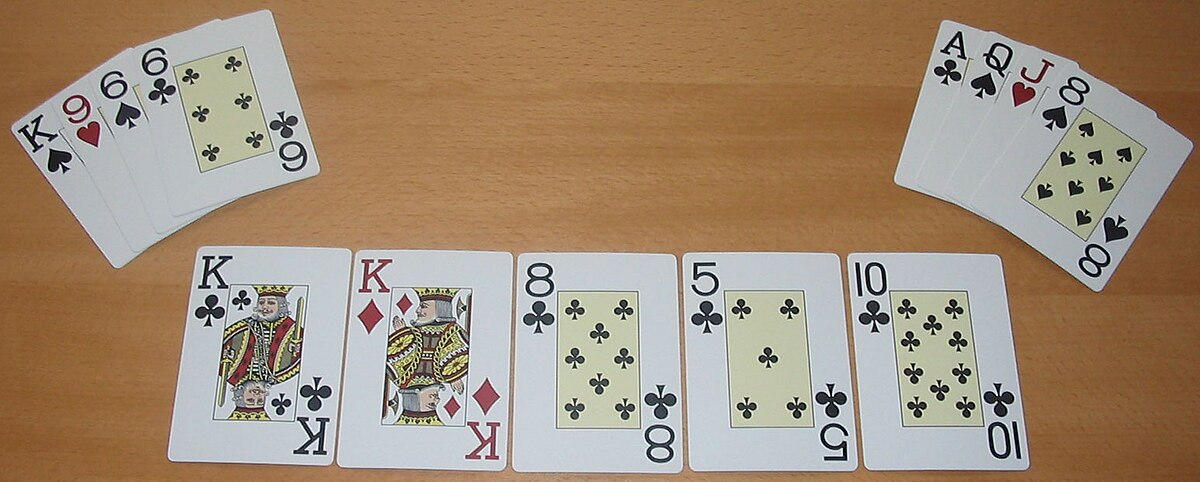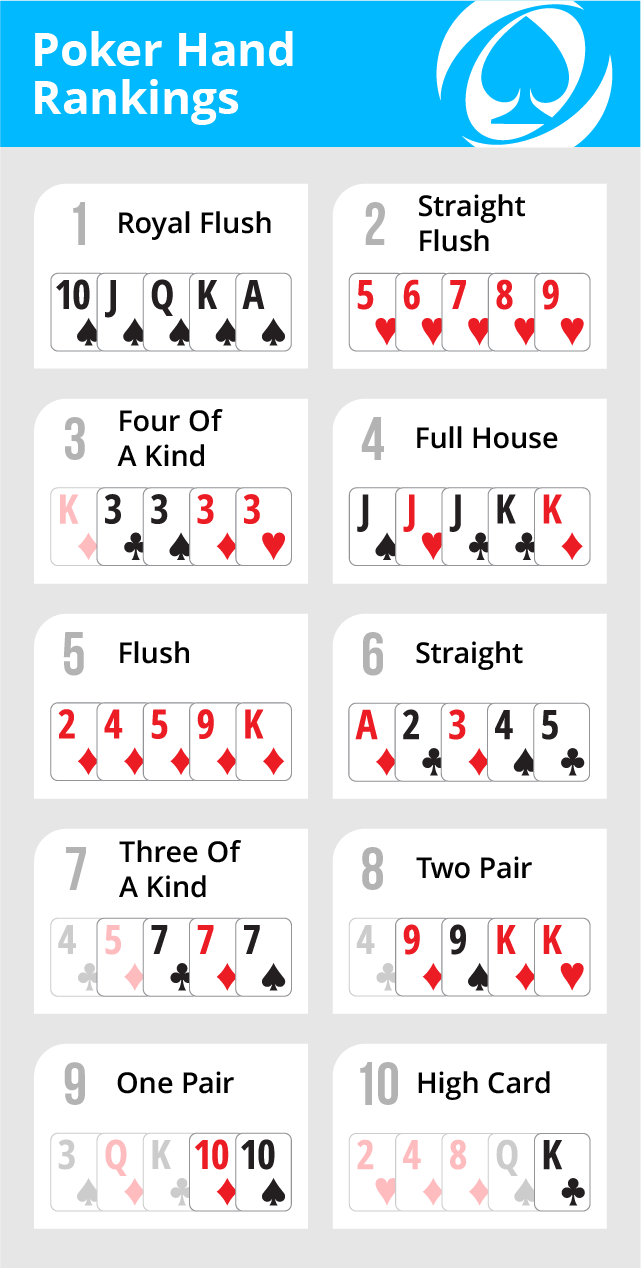Omaha Poker Hands Value
In poker, players form sets of five playing cards, called hands, according to the rules of the game. Each hand has a rank, which is compared against the ranks of other hands participating in the showdown to decide who wins the pot. In high games, like Texas hold 'em and seven-card stud, the highest-ranking hands win. The Hands in Omaha Poker. The lack of information can lead to wrongful assumptions and push you to take risks that are not justified by the value of the cards you hold. Below you will find a list of poker hands in order from highest to lowest to help you get started, as well as the top starting hands for Texas Hold'em. Click the button on the right to get a cheat sheet that displays the traditional poker hand rankings, which are used in the most popular variants of poker (such as Texas Hold‘em). Pot Limit Omaha Starting Hands. Pot Limit Omaha Starting Hands. In PLO there are a total of 16,432 different starting hands, made up of all the possibilities that result from the 270,725 stochastically possible combinations. So how do you decide what starting hands to play and what not to play.
Winning poker hands.
To win at Omaha poker you need to know the winning hands, and this is absolutely essential in Omaha because you need to know if you are drawing to a great hand or not. Skill comes into how you play the hand and if you don’t know if you have a winning hand or draw, you wont be able to make and call the right bets. So the first part of getting an advanced Omaha strategy in play is to remember the hand rankings below.
You start with four cards in your hand and end up with five cards on the table. The winning hand must be made up of two of the four cards in your hand and three of the five cards on the table. The hand rankings below represent that combination of two cards from your hand and three from the table.
1: Royal Flush.
For a Royal Flush you need an Ace King Queen Jack Ten all of one suit, hearts or clubs, diamonds or spades. A Royal Flush beats every other hand there is, but you won’t see one very often. Enjoy it and rake in as many chips as you can when you do.

2; The straight flush.
Second in rank five cards in sequence of the same suit, but not including the ace high. Also not a common hand but often well disguised.
3; Four of a kind.
Any four cards of the same rank, also known as quads. If there are four cards the same on the board, whoever has the highest card in their hand, such as an ace, will win. If two people have the same high card the pot will be split.
4; Full house;
To get a full house you have three cards of one value and two cards of another. In the example of 9,9,9,10,10 the rank of the three nines determines the strength of the hand. If someone else has a full house of 10,10,10,9,9 this hand wins because the 9,9,9 is lower than the 10,10,10 of the other hand.
5; The flush.
Five cards of the same suit make a flush. More than one person can have a flush. The winner is the person with the highest card making the flush.
Omaha Poker Hands Valued
6; Straight.
A straight is made up of any five cards in sequence but not of the same suit.
7; Three of a kind.
Any three cards all of the same rank.
8; Two pairs.
Two pairs of cards. Two players can have more two pairs and the winner is determined by the person having the highest pair.
9; Pair.
Any two cards of the same value.
10; High card.
In poker the highest card is an ace then a king and so on down the rankings. If no one makes a hand, whoever has the highest value card will win.
So now you know which hands will win the game, get out there and have a go. Playing Omaha poker is great fun and if you play well can be profitable.
If you want to play Omaha with other beginners at a low risk game, look up Boom poker club (Australia’s largest online club with well over 1000 players, with a poker jackpot of $4,000) onfacebook; or for instructions on how to enter the game email here; anish.kumar15@live.com
Note; The authors of Beginners Omaha Poker have no commercial connection to Boom poker club.
And if its Texas Holdem poker you are wanting to learn about, look at this great site; How to play Texas Holdem Poker.
Omaha is a board game similar to hold’em in so far as there is a flop, a turn card, and a river card. Learning how to play Omaha is simple if you’re familiar with Texas hold’em. In this lesson we’ll frequently compare the differences between Omaha and Texas hold’em, so it’s assumed that you are familiar with the game.
In Omaha each player receives four starting cards versus just two in hold’em. Of these four cards two must be used with any three from the board to make your best five card poker hand. This is something that beginners often forget – and such rookie mistakes can prove expensive.
Here’s an example hand:
In this example there are four spades on the board and you are holding the . However you don’t have a flush since you must use two of your hole cards and three board cards to make your hand. This is different to hold’em, where a player is permitted to use both of their hole cards, only one, or none and just play the board.
A flush is only possible in Omaha if a player has two of that suit among his four cards. In this particular example the best Omaha hand you can make is; – which is one pair.
The fact that you must use two cards from your hand and three from the board in Omaha, means you can quickly see that being dealt four of a kind is really a very poor hand as you only have a pair and both your key outs are dead.
Omaha Strategy Tips
Receiving four cards and being forced to use two of them in your hand results in your hand having six possible variations. In a nine handed hold’em game there are nine possible hands competing for the pot. In a nine handed Omaha game there are actually fifty four possible hands lurking out there. This dynamic makes for several changes in your approach to playing winning Omaha versus hold‘em. Let’s review several of them:
Hand Values
The nut hand in Omaha is very often held by one of the players due to the aforementioned dynamic. This can be very treacherous for a newcomer to Omaha who is accustomed to playing hold’em. The nuts will be shown down much more frequently in Omaha. This means that your hand values need to go up or you are destined to become a donator. Knowing this is one thing but adhering to it is quite another. With six possible hand combinations, many players have difficulty getting away from marginal hands.
The famous American author and actor, Will Rogers, was fond of saying, “I never met a man I didn’t like”. Inexperienced Omaha players tend to say, “I never met a starting hand I didn’t like”. The best starting hands utilize all of their cards. An example would be – which is double suited. This way you would have two nut flush draws and two individual high pairs. You do not have two pair as you can only and must use two cards from your starting four with any three cards from the board.
Drawing Hands
With all players having six combinations in their starting four card hands, you can imagine that there are usually plenty of draws lurking about. As a rule of thumb you should usually abandon straight and flush draws that are not to the nuts. Drawing to the second nut draw in Omaha can be a very costly endeavour. While you may play somewhat looser pre flop based upon the multiple combinations of draws, once you are able to confirm that your draw is not to the nuts it should make you tighten up considerably. While discipline is a vital characteristic for playing all forms of poker well, Omaha demands restraint in order to be successful. Many players are unable to summon this level of dedication to purpose so Omaha can be profitable for the stronger willed among us.
Backdoor Draws
Again, due to the multiple variations in a four card starting hand you gain the benefit of additional outs. While multiple draws occur in hold’em they become almost common place in Omaha. This again is the reason that the best Omaha starting hands utilize all four cards. If half of your starting hand is useless, you are spotting your opponents too much edge.
Implied Odds
While implied odds are an important consideration in all forms of poker, the importance they hold in no-limit hold’em is far and away more critical than in Omaha. This is because the other players are aware that the nuts get hit more often and therefore become reluctant to pay them off. If you’ve become accustomed to using implied odds to bolster your drawing rationale in other forms of poker, temper their use in Omaha.
Hand Reading

Reading opponents’ hands becomes a real challenge in Omaha due to the multiple combinations of each four card starting hand. My advice is to give your opponents more credit for hand values than you might in other forms of poker. This is true because there is less bluffing in Omaha since most players realize the nut hand is often out. Always being aware of what the current nut hand is will serve you well in Omaha.
Omaha Poker Hands Value Calculator
These elements highlight the major differences between Omaha and hold’em and prepare you for understanding some key Omaha strategy concepts which will be outlined in our other lessons on Pokerology.com.
Related Lessons

By Tom 'TIME' Leonard
Tom has been writing about poker since 1994 and has played across the USA for over 40 years, playing every game in almost every card room in Atlantic City, California and Las Vegas.